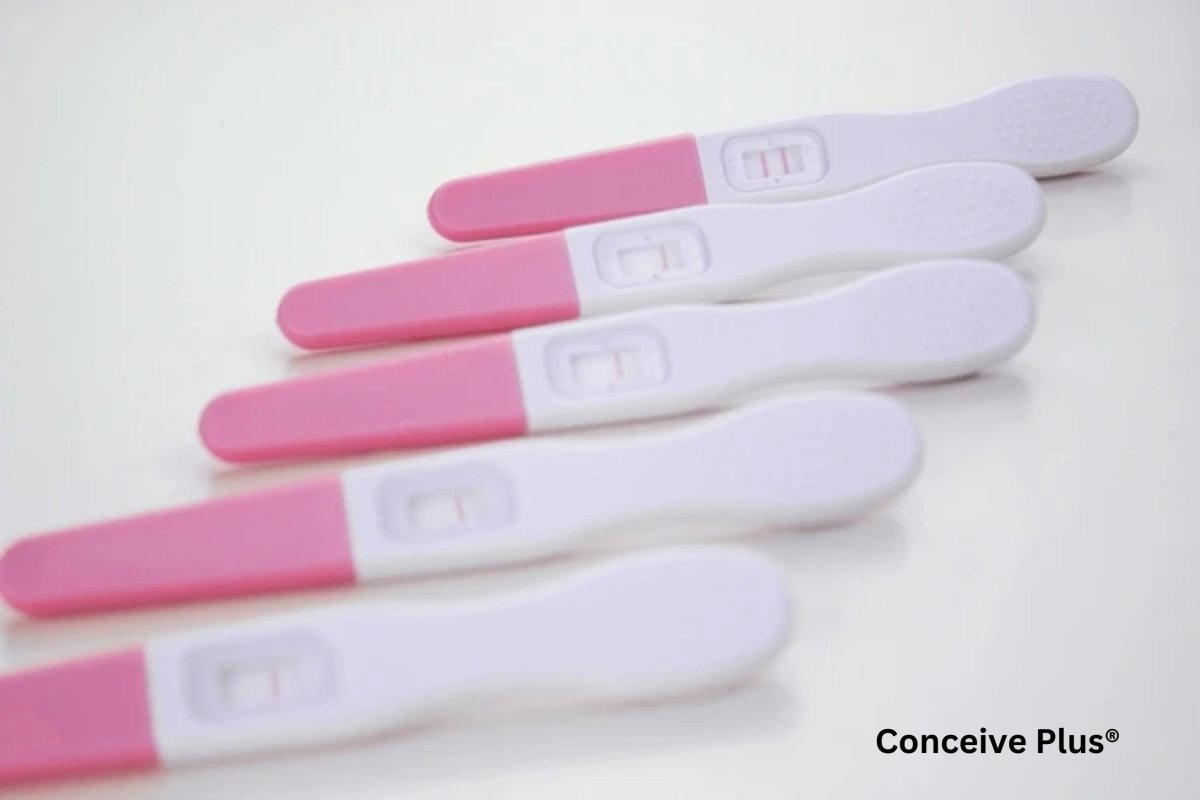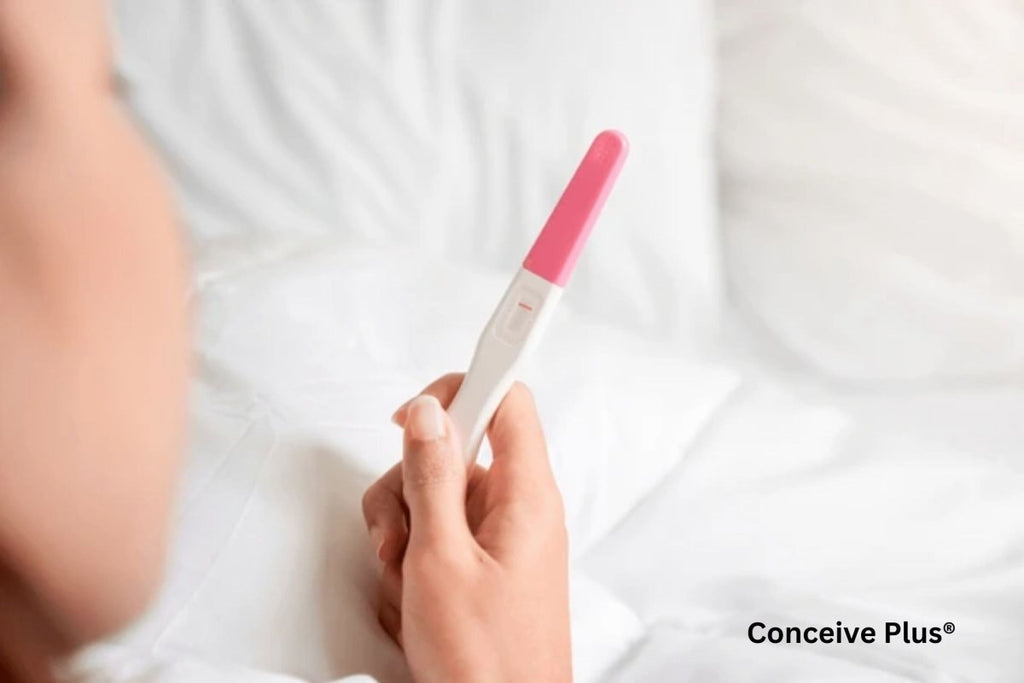What Is Mean By False Positive Ovulation Test?

Ovulation is the phase in the female menstrual cycle when the ovaries release the egg. It is the time when a woman's chances of conception are maximum, and this is where ovulation tests play an important role [1].
These tests tell when a woman ovulates, helping them plan intercourse accordingly and increase their chances of conception. However, it is also possible to get a false positive ovulation test. These false reports can lead to confusion, frustration, and difficulty in conception.
In this article, we will explain what ovulation tests are, why they are important, and how they can sometimes give incorrect results. This article also covers tips to improve the accuracy of ovulation tests.
What Is an Ovulation Test?
Ovulation occurs when the levels of luteinizing hormone (LH) suddenly increase [1]. This rise in LH is called an LH surge, and it signals that ovulation will likely happen in the next 24 to 36 hours. But how to track ovulation with a test? An ovulation test measures the level of LH hormone in the urine to determine the ovulation days [2]. For detailed guidance on how to use these tests effectively, refer to the Clear Blue Ovulation Test Instructions, which provide step-by-step information on tracking your LH surge accurately.
Women use these tests to determine their most fertile days, which is very helpful when trying to conceive. Planning intercourse during the most fertile days of women increases the chances of sperm and egg union and fertilization.
Why Are Ovulation Tests Important?
Ovulation tests allow women to understand their fertility cycle. When a woman knows when her ovulation days are expected to come, she can plan intercourse on those days to increase the likelihood of sperm and egg fertilization [3].
Some women can predict their ovulation days just by following an ovulation calendar. However, women who experience irregular periods, such as in PCOS, may not know when their fertile window occurs. In such cases, ovulation tests become significantly helpful in determining the ovulation days. These tests are also used during fertility treatments to time procedures like insemination or egg retrieval [4]. To support hormonal balance and improve ovarian function, consider Conceive Plus Ovulation Support, a scientifically formulated supplement containing D-chiro Inositol, Myo-Inositol, and ginger to regulate ovulation and ease menstrual discomfort.
Can Ovulation Tests Be Wrong?
There is always a chance of error in tracking tools, including ovulation tests. One common example of an error in ovulation tests is a false positive result.
False Positive Ovulation Test
It is not surprising that ovulation tests can sometimes give false positives. A false positive means the test shows an LH surge when ovulation is not actually happening. Some common reasons for false positive results are:
- Polycystic Ovary Syndrome (PCOS): PCOS is a condition characterized by abnormal hormonal fluctuations in women [5]. Women with PCOS often have higher LH levels, which is why the test detects LH surge and confirms ovulation.
- Recent Pregnancy or Miscarriage: It is possible that hormones from a previous pregnancy may still be present and interfere with the test results.
- Medications or Supplements: Some drugs, especially fertility medications, can affect hormone levels and cause a false positive.
- Cross-Reactivity with Other Hormones: Ovulation tests may mistake other hormones, like hCG or FSH, for LH, leading to inaccurate or false positive results.
Tips to Increase the Accuracy of Ovulation Tests
The following tips can help you lower the risk of false positives in ovulation tests:
- Track Other Signs of Ovulation: Don't completely rely on the output of the ovulation test. In addition to ovulation tests, you should follow other methods to confirm ovulation, such as changes in cervical mucus and basal body temperature [1].
- Use Multiple Methods: Combine ovulation tests with other tracking tools, like fertility apps, ovulation calculators, or charts.
- Consult a Doctor: If your cycles are irregular or you suspect hormonal issues, seek medical advice. A healthcare provider can help identify the cause of irregular menstrual cycle and suggest the best possible method to track ovulation.
The Bottom Line
Ovulation is a very important phase during the menstrual cycle for any woman planning to conceive. There are many ways to track ovulation, including ovulation tests. However, it is possible to get false positive ovulation test results because of hormonal irregularities and other health conditions.
The best practice when tracking ovulation is to use multiple methods and not rely on just one. Along with ovulation tests, you can track ovulation by detecting changes in cervical mucus and basal body temperature and ovulation calculator.
FREE OVULATION CALCULATOR: Calculate Your Ovulation Days Here
Resources Used
- Holesh JE, Bass AN, Lord M. Physiology, Ovulation. [Updated 2023 May 1]. In: StatPearls [Internet]. Treasure Island (FL): StatPearls Publishing; 2024 Jan-. Available from: https://www.ncbi.nlm.nih.gov/books/NBK441996/
- Demir, A., Hero, M., Alfthan, H., Passioni, A., Tapanainen, J. S., & Stenman, U. H. (2022). Identification of the LH surge by measuring intact and total immunoreactivity in urine for prediction of ovulation time. Hormones (Athens, Greece), 21(3), 413–420. https://doi.org/10.1007/s42000-022-00368-9
- Pregnancy - identifying fertile days: MedlinePlus Medical Encyclopedia. (n.d.). https://medlineplus.gov/ency/article/007015.htm
- Professional, C. C. M. (2024, May 1). IUI (Intrauterine Insemination). Cleveland Clinic. https://my.clevelandclinic.org/health/treatments/22456-iui-intrauterine-insemination
- Singh, S., Pal, N., Shubham, S., Sarma, D. K., Verma, V., Marotta, F., & Kumar, M. (2023). Polycystic Ovary Syndrome: Etiology, Current Management, and Future Therapeutics. Journal of Clinical Medicine, 12(4), 1454. https://doi.org/10.3390/jcm12041454
Conceive Plus is the best place to buy myo-inositol online for the best myo-inositol supplements Conceive Plus Ovulation Support contains premium myo-inositol for sale. Order myo-inositol capsules online today to boost your ovulation and regulate hormones and menstrual cycles.





















